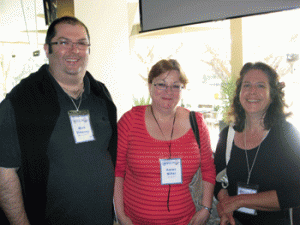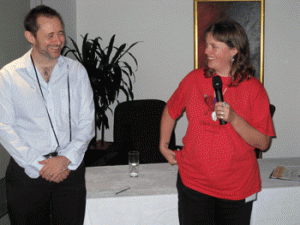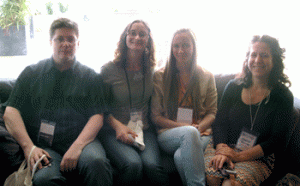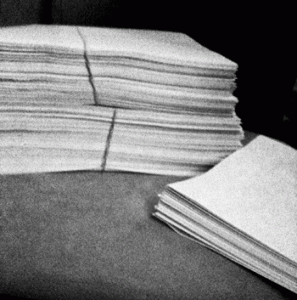Gather round! Gather round! For it is time for part 2 of Editor Q&A.
Last week, I explained that these posts were the consequence of a social media question time[i] I held a few weeks ago. I’m sticking to that explanation, and without further ado proffer the following as part 2…
FADE IN:
EXT. DIRT ROAD. TWILIGHT.
<HOWLING>
***
@laimelde asked: How do you get work/how does the process of agreeing to edit someone’s (manuscript) happen? ie: What info should someone have handy before they approach an editor?
1. Freelance editors get work by:
- Word of mouth – fellow editors passing names on (either because we used to work in-house with them or because we have freelanced for them) or publishers/authors/clients passing our names around.
- Many of us also have our own websites and advertise in editorial directories etc.
- Most states/territories in Australia have a Society of Editors. Members can often apply to advertise in the directory and there is usually a jobs board as well as networking events.
- Networking – in person and online!
2. As to the process of hiring an editor…
The basics to have on-hand when you approach an editor are:
- A manuscript or document that is ready for an editor. (ie: not one you are still rewriting. UNLESS you want an editor or mentor to work with you at that level[ii].)
- The final word count.
- A description of the manuscript/document.
- A goal.
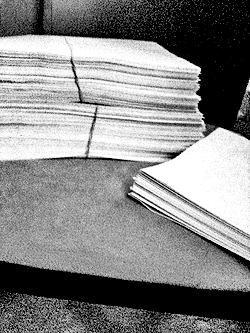
I also like it when clients are able to give me a history of the work: whether it’s a first draft or something they’ve been working on for years and that they’ve passed through crit partners and writing groups. (This also holds for, say, corporate documents that may be compiled from several sources – has anyone else had a go at editing it into shape or am I being given the raw data?).
This gives me an idea of what state the manuscript is likely in and how much experience the author/writer has with being edited. This can affect the advice I give and terminology I use when discussing the work with them.
It also means I get an idea if the author is trying to hire someone too early in the process. A lot of people try to hire an editor to work on their very first draft and I think this can be a mistake.
If the author is looking for a quote, I usually ask for a few sample pages so I can gauge for myself how much work is likely involved in the edit. It also means I can give them feedback on the service I think is most suitable to them. I need to know the full, final word count for the same reason.
A description of the manuscript can be as simple as a couple of words stating that it’s a sci-fi novel or a short story, or as detailed as a half-page synopsis. This lets me know what I am dealing with – proofreading a legal text requires different time and skills than copyediting a romance novel, and developmental or substantive edits are different again.
Defining the goal is also important and it’s an opportunity for the author/client to clarify their expectations of the process[iii].
Someone who is self-publishing will need slightly different services to someone who plans to submit to agents and publishers. Someone who wants to work slowly on developing their manuscript will need different advice to someone who already knows how the publishing process works and wants a straight copyedit without any fuss. This part of the conversation ensures that both the author/client and the editor are approaching the edit with the same expectations and understanding.
Desolie Page asked: What, for you, is the biggest challenge in completing an editing project?
I think the best answer I have is: being overwhelmed.
Sometimes the project feels insurmountable – maybe there is just so much work to be done on the manuscript that it’s hard to know where to start; or it is competing with other deadlines and it feels like you could never get it finished. Sometimes it can even be difficult to know when to stop…
In this case I am a chronic list-maker. I write out all the steps I need to complete for the edit, or all the tasks I need to complete and their deadlines, and then mark them off as I go.
NB: I found this question quite tough – not because there are no challenges to editing, but because there are so many different ones. So I made Desolie answer as well!
Here’s her response:
Well, apart from all the challenges of freelancing (marketing, workflow), I often forget to pace myself, especially when working on a tight deadline. I need to take mini-breaks to rehydrate, change my focus for a bit, otherwise I’m just head down and running on adrenaline, which is not good for my health.
Like you, I need a list to remind me of the ‘little’ things I need to check. And I’ve learnt to keep all the notes relating to a project in the same place, rather than just grabbing the nearest piece of paper that I manage to misplace. I think my biggest fear is that I’ll miss something that obvious.
That sounds like my challenge is being organised (better work on that one).
***
FADE OUT.
Thanks everyone who joined in and asked questions! I’m always happy to answer editor questions, if I can. Drop a line in the comments or ask me on Tumblr, Twitter or Facebook. (And if I can’t help there’s sure to be someone online who can!)
[ii] See previous post…
[iii] Sometimes writers will state explicitly that they are looking for “a proofread”. Asking what they want to achieve from the process – their ultimate goal, is a good way to find out if they are really expecting an edit that will analyse plot and structure. Alternatively, sometimes people ask about an edit when they’re not even sure whether they want to or should continue their work at all. Again, by getting them to explain this, an editor might conclude that the author really just wants some initial feedback.
[subscribe2]

